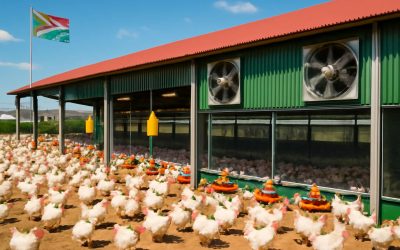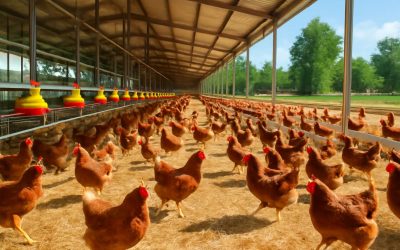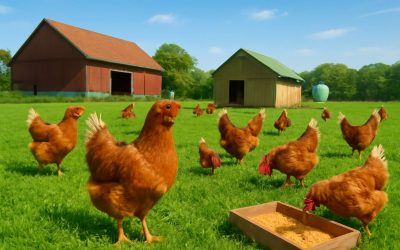
Chicken farming is a great hobby for anyone looking to learn more about how their food is produced and for those interested in helping improve the food system. It is also a fun and rewarding way to make money, meet new people and learn a new skill.
There are a lot of things you need to know before starting a poultry farm. You need to have a good understanding of the industry, federal, state and local laws and how to raise chickens correctly. Once you have the basics down, it’s time to build your business and marketing plans.
The chicken industry is one of the largest in the world and provides a significant amount of income for rural communities. This income supports family health care, education and other social needs in poor communities.
However, the production of chickens in Tanzania is not as high as it could be, so more education and support is needed to boost the sector. As a result, there is need to provide chicken farmers with better equipment and other resources to increase their productivity and income.
Choosing the right breeds of chicken is important. These birds have specific temperaments, laying capacities and climate tolerances that can affect egg production. You may want to consult with an expert to help you decide which breed is right for your needs.
Aside from hens, you can also raise turkeys, geese and ducks for meat and eggs. These animals are hardy and self-reliant, but they will not lay as many eggs as hens. They are also great projects for children to learn responsibility and animal husbandry skills.
If you’re planning to raise a large number of chickens, consider building a coop. The coop will help you keep them warm and protected from the elements while providing them with fresh air, light, water, and food.
You’ll need to choose a coop size that will accommodate your flock and the area you plan to raise them on. The coop should also be built with enough space so you can move your flock around when needed.
Another consideration is the climate, as the chickens need to be able to stay comfortable in hot and cold weather. You’ll need to make sure that the coop is well ventilated and can be heated in case of extreme temperatures.
Your coop should be equipped with a roosting box so your hens can have a safe and secure place to sleep during the day. The roosting box will prevent your chickens from climbing the walls of the coop and harming themselves or others.
The roosting box can be built by yourself or hired for a small fee. If you’re looking to hire someone, make sure to check their licensing and insurance.
There are many different diseases that can impact the health of chickens. Fowl cholera, coccidiosis, salmonellosis and avian flu are among the most common diseases that you’ll need to monitor closely. You can minimize the risk of your chickens getting sick by ensuring that they receive the appropriate nutritional content in their feed at every stage.



0 Comments